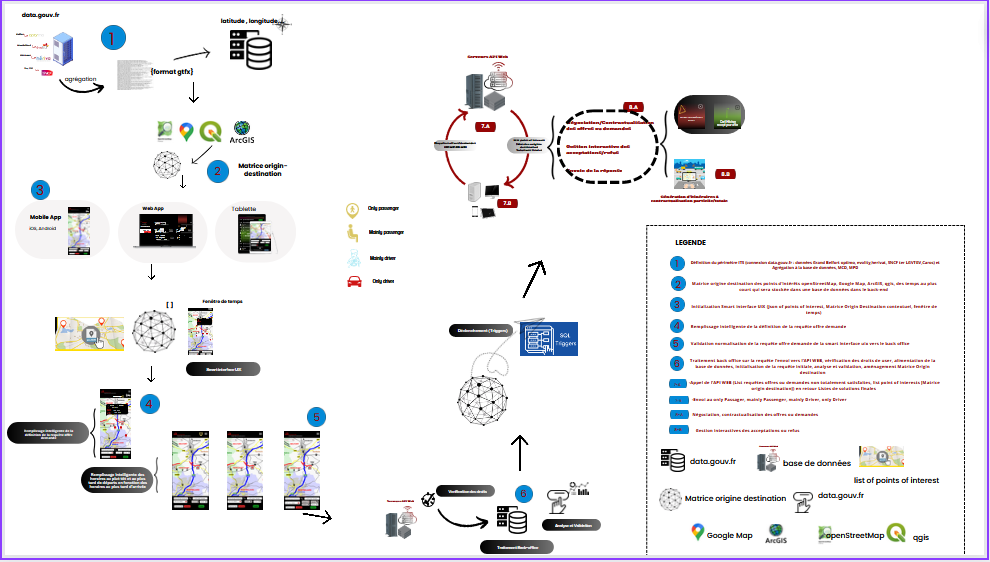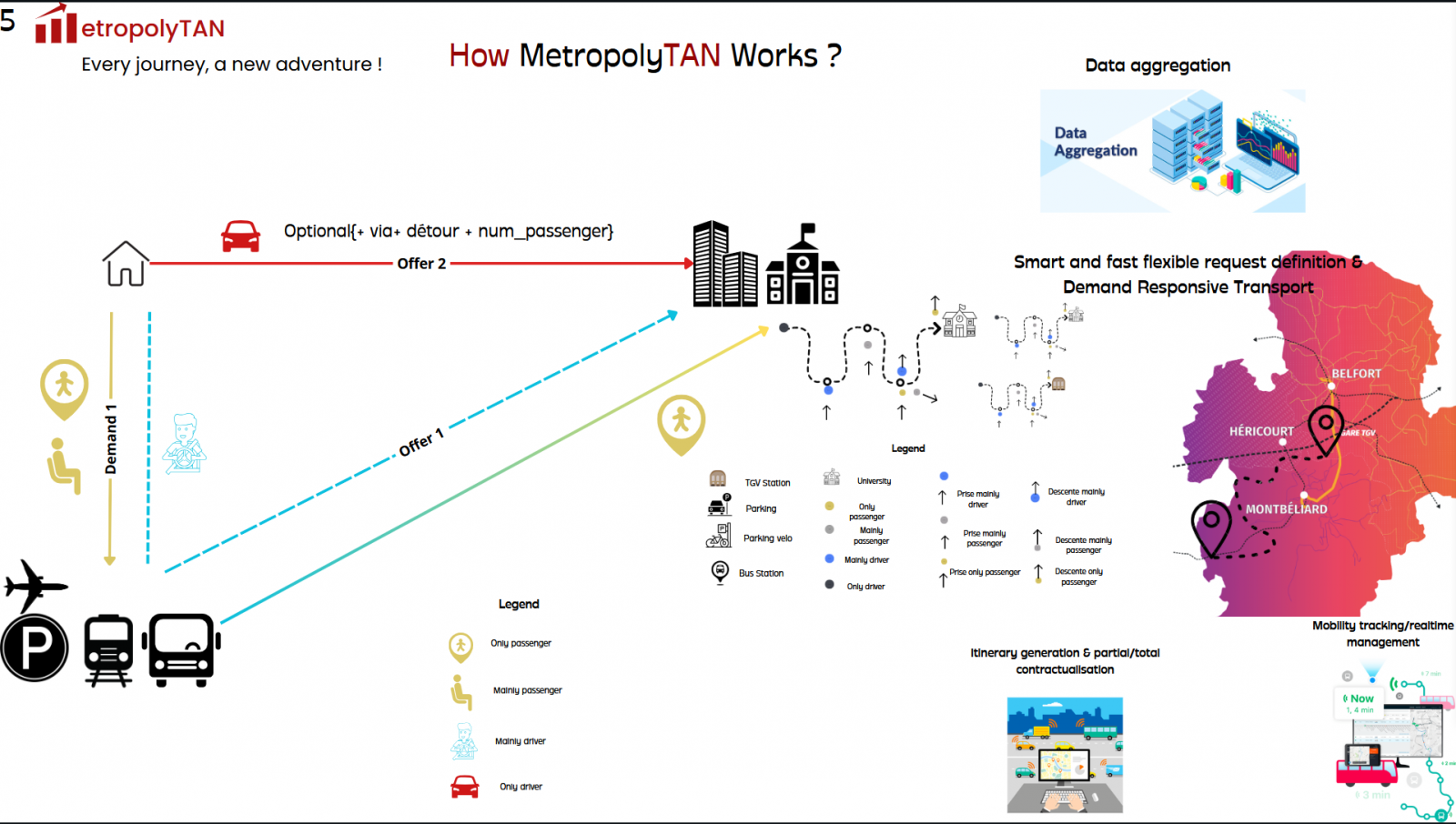Welcome !
Official website of Mu-CAR project, a Bourgogne-Franche-Comté regional project and inter-Graduate Schools EIPHI&TRANSBIO oct.2024-jan.2028
Mu-CAR project coordinator (main) and scientific (computer science) responsible of this project: Philippe Canalda, FEMTO-ST-EIPHI, uMLP/STGi (UFR)/Dpt Multimédia et Informatique, Montbéliard
Vice-Head of the WP "Operations Research, Data Science and Machine Learning: Algorithms for Matching Supply and Demand on Heterogeneous Static and Real-Time Data, with Uncertainty"
Coordinator CRESE-TRANSBIO and scientific (economy and behaviour) responsible of this project: Vincent Bertrand, CRESE, uMLP/STGi (UFR)/Dpt AES-Droit, Belfort
Responsible Strategy in Research&Development of this project: Claire Papaix, associated researcher at the MRE laboratory of Montpellier, and associated researcher at the London School laboratory
UTBM Coordinator: Oumaya Baala, FEMTO-ST, UTBM, Belfort
Head of the WP "Operations Research, Data Science and Machine Learning: Algorithms for Matching Supply and Demand on Heterogeneous Static and Real-Time Data, with Uncertainty"
IUT-NFC Coordinator: Igor Agbossou, THEMA, IUT-NFC, Dpt Carrières Sociales, Belfort
Coordinator FEMTO-ST-EIPHI: Hakim Mabed, FEMTO-ST, IUT-NFC, Dpt MMI et Dpt R&T, Montbéliard
Thesis Director of Anna Joliot (Oct.20204-Sept.2027) and Frederic Gaspoz (Jan.2025-Dec.2027)
Vice-Head of the WP "Operations Research, Data Science and Machine Learning: Algorithms for Matching Supply and Demand on Heterogeneous Static and Real-Time Data, with Uncertainty"
Other participants:
- Pascal Chatonnay
- Christelle Bloch
- Delphine Martin
- François Spies
- Gérard Cécé
- Ibra Dioum
Targeted project maturity objective: TRL 1-3 of laboratory prototype
Project Summary:
Outside of major metropolitan areas, smart transportation systems face challenges due to low ridership (3% to 8% of users) of public transportation. A mobility solution combining individual vehicle usage data and public transportation services will provide aggregated and up-to-date information on mobility services and enable the organization of multimodal carpooling coupled with a decision support system (DSS). The project aims to offer a transparent and simple Mobility as a Service (MaaS) where the focus is on the mobility service (from where, to where, and under what conditions) rather than on who provides the service.
We propose MaaS prototyping and a proof-of-prototype based on functional and operational evaluations. The service must enable visual and user-friendly monitoring of the status of various mobility services across the region, real-time processing of user mobility requests, and multi-criteria decision support. The scientific challenges inherent in such a service are numerous. Among the main levers to be addressed: (semantic) data aggregation, AI processing based on history and learning, operational research algorithms coupled with AAD, an ITS system offering facilitating UIX interfaces, and a multi-managerial administration (OM, AOM) focused on an ecological and social economic policy.

This figure represents the nominal scenario of the Multimodal Carpooling project Mu-CAR. It offers a focus on the key elements of this project from the aggregation of open and heterogeneous mobility data, the exploitation made of it from an intelligent UIX interface adaptable for related behavioral studies and a detailed analysis of mobility. A Back-end part, simplified here for cybersecurity and virtualization aspects, illustrates the core AI and RO processing, and Web-API, GIS, and open mobility data access.

As for this figure, it introduces a new flexible mobility organizing multimodality based on the use of individual vehicles within a Global Public Transport Offer (GPTO). The right part of the figure introduces a fragmented territory very representative of the obstacles to the development of shared, ecological and social mobility. The multiple Mobility Operators (MO), governed by multiple Mobility Organizing Authorities (MOA) must agree and offer a MaaS service integrating the use of individual vehicles in order to reach a level of democratization of a GPTO.

